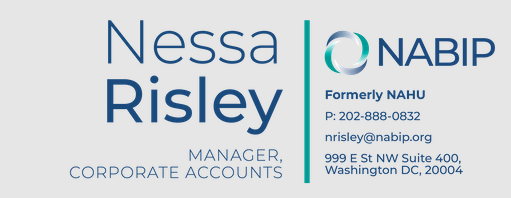Medicare Agent Training – What Does a Medicare Agent Do?

Written by Mike Hardle
VP of Sales
April. 27, 2023 11 min. read
What is the Role of a Medicare Agent?
The first question you should ask yourself before enrolling in online Medicare agent training is: What does a Medicare agent do exactly?
You’ll represent many insurance carriers as a Medicare agent (as an independent insurance agent) to assist consumers in selecting the best Medicare plan option. You’ve been tasked with providing an objective and truthful assessment.
Not Contracted with Agent Boost? You’re just a few steps away from getting ready to sell.
You’re not trying to upsell a certain plan; instead, you’re providing information and price tailored to the client’s needs and budget.
One of the most exciting aspects of becoming a Medicare agent is the ability to assist people in obtaining cheap healthcare.
The Basics of Medicare Training.
Because you are not representing a single carrier, becoming an independent Medicare agent differs from becoming a traditional insurance agent. The Medicare program has its own job description, training, and best practices.
Before enrolling in Medicare training, there are a few things to think about.
1. Recognize your target market.
Medicare is not available to everyone. There will be three types of customers in your target market:
Individuals over the age of 65 who could save money by switching to a newer plan.
Disabled people under the age of 65 who are eligible for Medicare be
Many Medicare agents claim to have developed long-term, meaningful connections with their customers.
Getting to know your clients on a more intimate level allows you to better understand their unique requirements. You can now confidently recommend the greatest, most inexpensive Medicare plan.
2. Obtain the Required License.
You must first obtain a health insurance license in the state where you currently reside before becoming a Medicare representative. Because the laws and requirements of each state differ, be sure to check with yours before proceeding.
After passing the required exam, you will earn your resident state health insurance producer license. You can now lawfully apply to represent insurance firms in your state after you get your license.
Keep in mind that the Medicare online certification training you’ll need to represent Medicare Advantage and PDP insurance providers is different from this license exam. The good news is that this exam will prepare you for what is ahead.
You’ll go through basic training to learn the fundamentals of health insurance policies and how they work. The following are some of the most essential issues covered:
Deductibles
Claims
Networks (HMO, PPO, etc.)
Co-insurance
Compliance and ethics
Healthcare laws
3. Decide whether you want in-person or online training.
To acquire your health insurance license, you may need to attend classroom training or study independently, depending on your state.
Because it is more flexible and allows you to work at your own pace, many aspiring agents prefer to study online or using textbooks. Check your state’s rules, as some of them require classroom training with a qualified instructor.
This is a good choice because it gives you access to a skilled broker who can promptly answer your queries.
Both alternatives necessitate passing an exam in order to earn your license. Many programs allow you to obtain your life insurance license while enrolled in them.
While a life license is not required to sell Medicare, it is desirable to provide consumers with life insurance guidance in the future.
4. Successfully complete the AHIP Medicare Training.
Obtaining a health insurance license is the first step toward becoming a Medicare representative.
After that, you’ll need to enroll in America’s Health Insurance Plans’ Medicare training and certification program (AHIP). You must not only complete training and take the exam, but you must also pass with a score of 90% or higher. You will be able to sell Medicare Advantage and Prescription Drug Plans after passing this test. It isn’t necessary to sell Medicare Supplements on their own.
Medicare-related products cannot be sold by just anybody. Agents must get special certifications from the Center for Medicare and Medicare Services (CMS).
All insurance companies, agents, and agencies that market their products are regulated by CMS. It’s worth noting that AHIP training is only offered once a year (typically in June or July) for the following Medicare plan year, so plan early.
5. Medicare Agent Training Isn’t Required, but It Is Strongly Recommended.
You probably want to be the best Medicare agent you can be. Not just for yourself, but also for your customers.
It is extremely advised that you undergo Medicare Agent training in order to do so. One of the key reasons is because these training programs do more than simply teach you about Medicare.
You’ll also learn how to talk to and approach clients, which will be extremely useful information and training.
Obtaining a health insurance license does not guarantee that you will be a successful salesperson.
You must connect with individuals on a human level and exhibit genuine concern for their well-being and future.
6. You must select a field marketing company.
An licensed Field Marketing Organization (FMO) distributes health insurance products on behalf of other insurance companies so that insurance agents like you can sell them.
To market Medicare Advantage, prescription medication plans, and Medicare supplements with various insurance companies, you must join an FMO. To lawfully sell and promote insurance carriers’ goods and collect a commission, you must be officially appointed with them.
Find out what carriers they’re affiliated with, how you’ll be paid, and how involved they are in the marketing process when selecting an FMO. As a new Medicare agent, you may require assistance in generating leads and marketing to prospects.
7. Take Care of Yourself.
Not every customer you meet will become a lasting friend. Some clients may give inaccurate information, placing you at risk of being sued for fraud.
You must have your own insurance to protect yourself (and your license). E&O Insurance (Errors & Omissions) is meant to do just that.
Because most insurance companies mandate it, you’ll need to get some kind of protection. Include this annual cost, which ranges between $300 and $500, in your budget and revenue projections.
8. Set realistic sales targets.
When it comes to budgeting and income, it’s critical to assess your income and expenses before becoming a Medicare agent.
With commission jobs, including insurance agents, there are no assurances. You’ll need a flexible budget that allows for income fluctuations.
However, this does not preclude you from estimating your revenue and expenses in order to define acceptable sales targets and objectives.
As of this writing, Medicare agents earn an average of $250 per member each year in renewal fees. In addition, depending on the state you live in, you might earn anywhere from $300 to $500 for signing up a new client.
It’s also worth noting that commissions differ depending on the items and plans you offer, as well as the carrier. Working with different carriers opens up more possibilities and gives you access to more potential clients.
When you’re initially starting off, it’s ideal to have a cash cushion.
9. Finish your contracts and begin selling Medicare.
You’re getting close to the finish line!
You need to get contracted and start making sales now that you know what credentials and protections you’ll need to be a successful Medicare agent.
To be assigned to sell, you must complete and execute a contract with each individual insurance provider. This is something that your upline can assist you with.
You’ll need a few items as you approach and contract with numerous agencies, including:
A current copy of your health insurance license
A copy of your E&O insurance policy
Background check has been approved.
A legally completed questionnaire (provided by your upline)
You must also pass the carrier’s annual certification exam each year. (If appropriate)
Obtaining approval to sell Medicare through numerous authorities takes time and patience. This method is strictly regulated by Medicare.
Before being approved to market Medicare, each carrier will require agents to go through a different process.
10. You Should Never Stop Learning.
Even after passing your initial Medicare agent training and certification exams, you’ll need to keep up with policy changes, rules, and legislation.
Continuing education is a vital component of becoming a Medicare agent, but it’s something that many agents ignore. These criteria differ from state to state, so verify with your local state to be sure your license is still valid. You won’t be able to sell Medicare or receive commissions unless you have a valid license.
Dedicated hours in your area of concentration, as well as ethics and anti-money laundering, are the minimal criteria for continuing education.
Begin your career as a Medicare agent right now.
A career as a Medicare representative can be both lucrative and fulfilling. You’re giving individuals more than just medical insurance and peace of mind; you’re also giving them credible advice and assistance.
Your prospects count on you to provide them with accurate information and competent advice. You may even establish enduring relationships as you grow more invested in their future and well-being.
Are you ready to begin the process of becoming a Medicare agent? We’re here to assist you!
Visit our blog for more tools and information, or schedule a coaching appointment today.
Table of Contents
Subscribe to our Newsletter
Receive important updates as they are released

Ready to start now?
Dial to 855-378-1451 and learn more today!
Powered by Agent Boost Marketing
© Copyright 2024 Agent Boost. All rights reserved. The information on this website is for agent use only and not intended for use by the general public.


